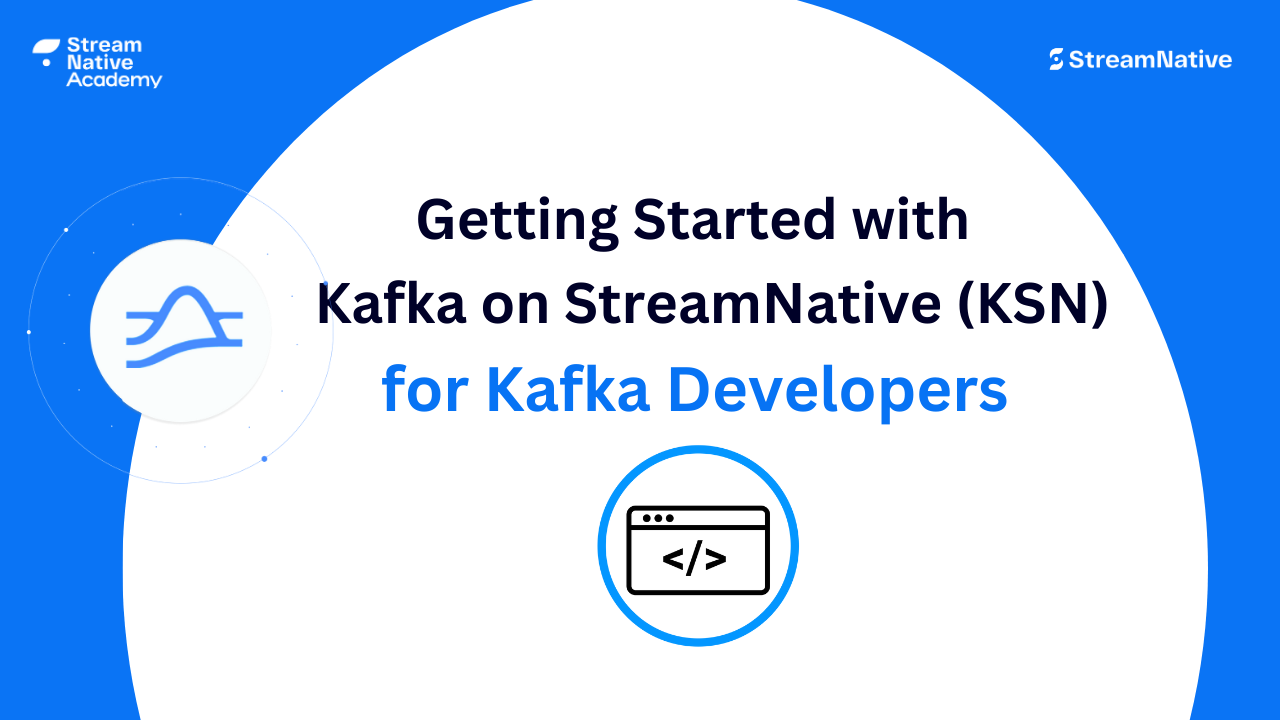
Getting Started with Kafka on StreamNative (KSN) for Kafka Developers
Designed for existing Kafka Developers, learn how to quickly connect your existing Kafka applications to Kafka on StreamNative (KSN).
Course Number
DEV-210Self-Paced
About This Course
Enroll in StreamNative Academy’s free short course Getting Started with Kafka on StreamNative (KSN) for Kafka Developers. The course is fully hands-on and self-paced, taking approximately three hours to complete.
- Convert an existing client.properties file to use Pulsar JWT Tokens or StreamNative API-Keys to connect to a KSN-enabled StreamNative Hosted Pulsar cluster.
- Convert an existing client.properties file to use OAuth2.
- Connect to the KSN Kafka protocol handler for producing and consuming messages and register schemas using the Kafka schema registry.
- In addition to using a client.properties file, code samples are also provided for configuring cluster connections directly in your Java code (JWT Token and OAuth2, for both protocol handler and schema registry).
- Code samples tested during the course include producing and consuming messages, transactions, and Kstreams. Further information for topic partitioning, compaction, and message retention is also provided.
- In addition, you will have an opportunity to try KSN’s support for multi-tenancy and enable geo-replication to a second StreamNative Hosted Pulsar cluster by executing just one command.
Course Options
Upon enrolling in the course, you will get immediate access to the course content. However, you will need access to sample code and a KSN-enabled StreamNative Hosted Pulsar cluster. There are two ways to complete the hands-on exercises:
Option 1 (Recommended): Request access to a StreamNative Academy coding environment with pre-loaded sample code and a tenant in the StreamNative Academy training cluster. This is the same cluster that was used to record the videos and the same code in all videos! This will ensure the smoothest training experience. Email training-help@streamnative.io with your request. We typically provide access in one business day. You will have access to the environment for one week. We request that you do not use this option to test your own Kafka code.
Option 2: Spin up your own KSN-enabled StreamNative Hosted Pulsar cluster by visiting streamnative.io. A $200 credit is available for testing. You can then test your own Kafka code against the cluster, following the course directions on how to edit your existing Kafka code to connect using a JWT Token or OAuth2. We have included directions in the course for setting up a service account, tenants and namespaces, and required permissions in your cluster. Sample code is available for download in the course. You can also request access to the pre-loaded coding environment to use with your own cluster.
Course Certificate
You will receive a certificate of completion and a course badge for LinkedIn upon completion of all required exercises. The certificate and badge are only available if using Option 1 above.
Requirements
Beginner experience using Java (or similar programming language) is recommended. While the course is designed for existing Kafka developers, no prior experience using Kafka or Pulsar is required.
Contact training at training-help@streamnative.io with any questions.

